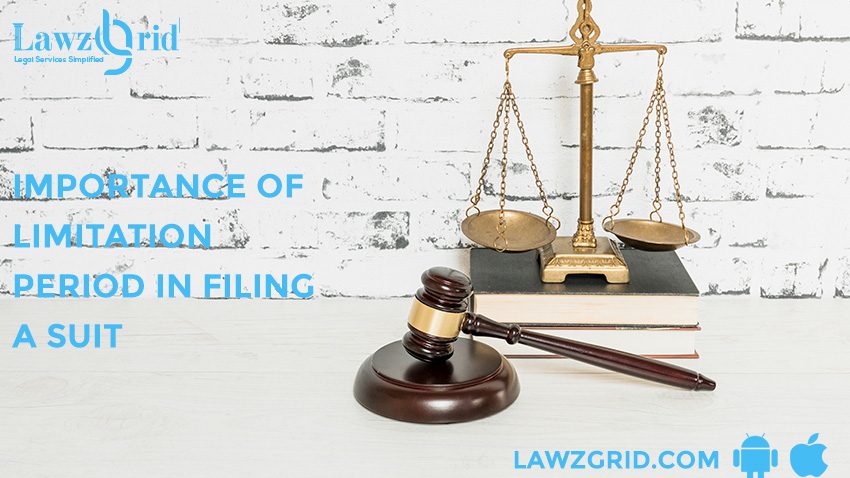Importance of Limitation Period in Filing A Suit
People today are well aware of their rights and do not hesitate in approaching the court of law in order to enforce their rights. Quite often it is witnessed by top civil lawyers in Delhi that the people decide to approach the court when the time-limit prescribed by the law has passed. Thus, the best Supreme Court lawyers in India lay great emphasis on instituting a suit in due time. However, it is important to mention that the time limitation provided by the law bars the remedy but does not destroy the right.The Limitation Act, 1963 is the law in force which talks about the limitation. The object of the Limitation Act is to quite long possession and extinguish stale demands. The underlying principle behind this object is that it is to the interest of the state hat remedies for violated right should be sought in Court without delay. Violated rights and suits are based upon the evidence to establish and substantiate them in a court of law and long delay may obliterate all evidence which might tend to prejudice the justice. Unlimited and perpetual litigation disturbs the peace of society and leads to disorder and confusion. The statute of limitation is said to be the statute of repose, peace, and justice. It is one of repose because it extinguishes stale demands and quiets title. On the other hand, it secures peace as it ensures the security of rights and justice.It is important to note that the Indian Limitation Act deals with the law of prescription as well as the law of limitation. The law of prescription prescribes the period at the expiry of which not only the judicial remedy is barred but a substantive right acquired or extinguished. While the law of limitation limits the time after which a suit or other proceeding cannot be maintained in a court of law. This measure simply bars the judicial remedy but neither affects the extra-judicial remedies nor the substantive rights. It is contented that fixation of the period of limitation to some extent is arbitrary and might frequently result in hardship. Thus in construing provisions of the Limitation Act equitable consideration are out of place and strict interpretation of the words is the safe guide. Being a procedural law it is retrospective in its operation and governs al proceedings from the moment of its enactment even though the cause of action might have accrued before the Act came into existence.The Limitation Act is applicable only to the proceedings before a court and not to appeals or applications before bodies other than courts like quasi-judicial tribunals or executive authorities even though they might be vested with the powers of a civil court. The Act provides that a suit or an appeal or an application filed beyond the time prescribed thereof, shall be dismissed although limitation is not set up as defence by the opposite party. Thus is rests a duty upon the plaintiff to convince the court that his suit is within time. If it is out of time and the plaintiff relies on any acknowledgment in order to save limitation he must plead them. As mentioned earlier that the law is to be interpreted strictly, therefore, the parties cannot by means of an agreement or consent extend or alter the period of limitation. The Act not only talks about the period of limitation but also talks about the condonation of delay in filing of a suit in due time. The plaintiff must satisfy the court that sufficient cause existed for not filing the within the prescribed period. But it is the discretion of the court to admit or to refuse to admit the proceedings even if sufficient cause is shown. Thus it is highly necessary that a suit is filed in due time in order to avail the legal remedy available.

